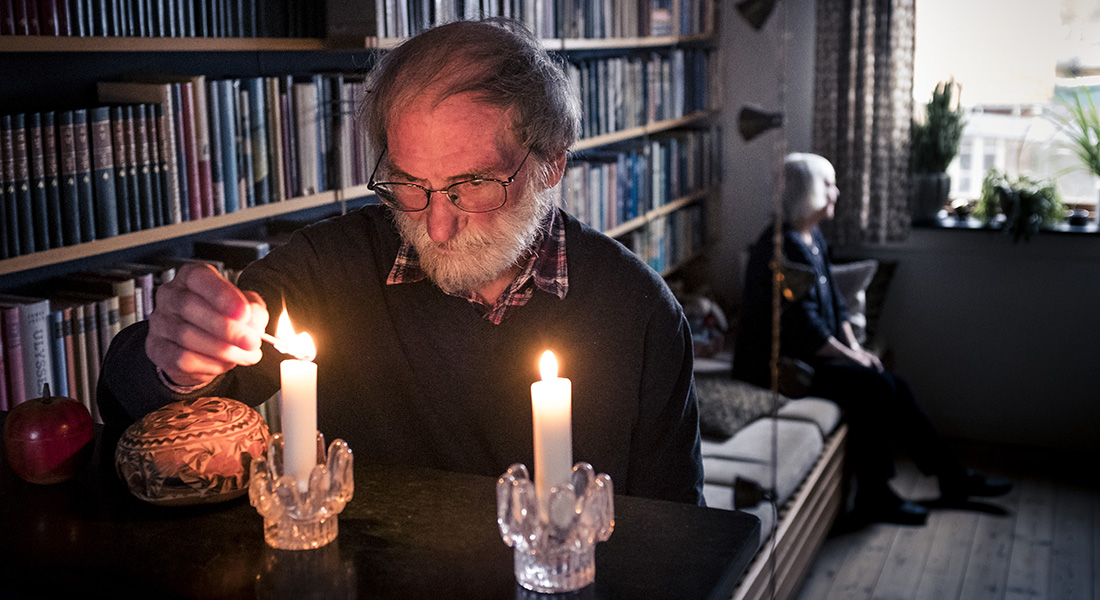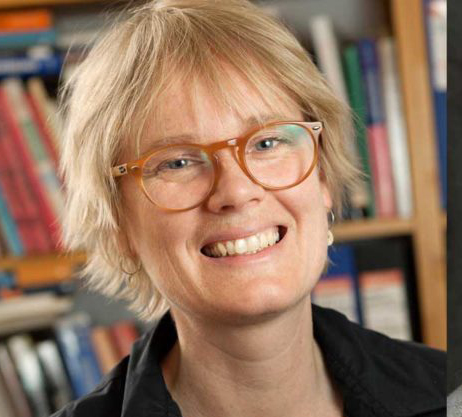Social inequality in aging in the Lund Group
Our purpose is to study social inequalities in health and aging in a life course perspective, and to explore the pathways through and interactions with psychosocial, psychological and biological factors. We want to inform policy makers on intervention possibilities aiming at reducing social inequality in health among middle-aged and older adults.

Professor Rikke Lund is leading the Copenhagen Lifecourse Epidemiology in Ageing Research group (CLEAR) with four major research themes:
- Life course and aging – with a main focus on identification of life course social, psychological, behavioural and biological risk factors for physical and cognitive function, inflammation and retirement patterns in late middle-age and early old age.
- Risk factors for disease and functional decline among older people – with a main focus on the impact of social circumstances and risk of functional decline.
- Natural experiments and complex interventions - with a main focus on middle-aged and older people living in socially diverse neighbourhoods.
- Demography of aging – with a major focus on gender and social inequalities in health and life expectancy.
We believe that a better understanding of life course social determinants of aging as well as their interplay with psychological, behavioural and biological factors is of huge importance in today’s aging society, in order to inform effective intervention strategies. Specific knowledge about risk factors and development of interventions in the most vulnerable older citizens will add important new knowledge to this area.
- Adverse socio-economic position across the life course (parental socioeconomic position and own income history) is associated with poorer physical and cognitive function as well as higher inflammatory levels in midlife.
- That older Danish adults are in higher risk of decline in physical function and increased mortality when exposed to both poor social relations and low level of financial assets compared to those with good social relations and high assets. Poorer physical function was associated with a greater increase in general practitioner use among males, those who were married, and those with high financial assets.
- Experiencing conflicts and demands from close social relations is associated with increased 10-year risk of hospitalization with ischemic heart disease and higher 11-year mortality in middle-aged Danes. The effect is significantly stronger in low socioeconomic groups.
Associations of loneliness and social isolation with physical and mental health among adolescents and young adults
Christiansen, J., Qualter, P., Friis, K., Pedersen, S. S., Lund, Rikke, Andersen, C. M., Bekker-Jeppesen, M. & Lasgaard, M., 2021, In: Perspectives in Public Health. 141, 4, p. 226-236 11 p.Challenges and lessons learnt from conducting a health survey in an ethnically diverse population
Nygaard, Siv, Srivarathan, Abirami, Mathisen, Jimmi Kristiansen, Maria, Christensen, Ulla, Kvorning, M. F. & Lund, Rikke, 2021, (E-pub ahead of print) In: Scandinavian Journal of Public Health.Education and adolescent cognitive ability as predictors of dementia in a cohort of Danish men
Foverskov, Else, Glymour, M. M., Mortensen, Erik Lykke, Osler, Merete, Okholm, Gunhild Tidemann & Lund, Rikke, 2021, In: PLoS ONE. 15, 8, 13 p., 0235781.Educational attainment and trajectories of cognitive decline during four decades-The Glostrup 1914 cohort
Harrsen, K., Christensen, K., Lund, Rikke & Mortensen, Erik Lykke, 2021, In: PLoS ONE. 16, 8, 15 p., 0255449.Loneliness, Social Isolation, and Chronic Disease Outcomes
Christiansen, J., Lund, Rikke, Qualter, P., Andersen, C. M., Pedersen, S. S. & Lasgaard, M., 2021, In: Annals of Behavioral Medicine. 55, 3, p. 203-215 14 p.Self-rated health in individuals with and without disease is associated with multiple biomarkers representing multiple biological domains
Kananen, L., Enroth, L., Raitanen, J., Jylhava, J., Buerkle, A., Moreno-Villanueva, M., Bernhardt, J., Toussaint, O., Grubeck-Loebenstein, B., Malavolta, M., Basso, A., Piacenza, F., Collino, S., Gonos, E. S., Sikora, E., Gradinaru, D., Jansen, E. H. J. M., Dolle, M. E. T., Salmon, M., Stuetz, W., Weber, D., Grune, T., Breusing, N., Simm, A., Capri, M., Franceschi, C., Slagboom, P. E., Talbot, D. C. S., Libert, C., Koskinen, S., Bruunsgaard, Helle Kemp, Hansen, Å., Lund, Rikke, Hurme, M. & Jylha, M., 2021, In: Scientific Reports. 11, 1, 14 p., 6139.Smartphone interactions and mental well-being in young adults: A longitudinal study based on objective high-resolution smartphone data
Dissing, Agnete Skovlund, Rod, Naja Hulvej, Gerds, Thomas Alexander & Lund, Rikke, 2021, In: Scandinavian Journal of Public Health. 49, 3, p. 325-332 8 p.
Group members
| Name | Title | Job responsibilities | Phone | |
|---|---|---|---|---|
| Charlotte Juul Nilsson | Associate Professor | Associate Professor | +4535327122 | |
| Drude Molbo | Data Administrator | Data Administrator | +4535326736 | |
| Else Foverskov | Assistant Professor | +4535328974 | ||
| Terese Sara Høj Jørgensen | Associate Professor | Associate Professor | +4535335886 |

